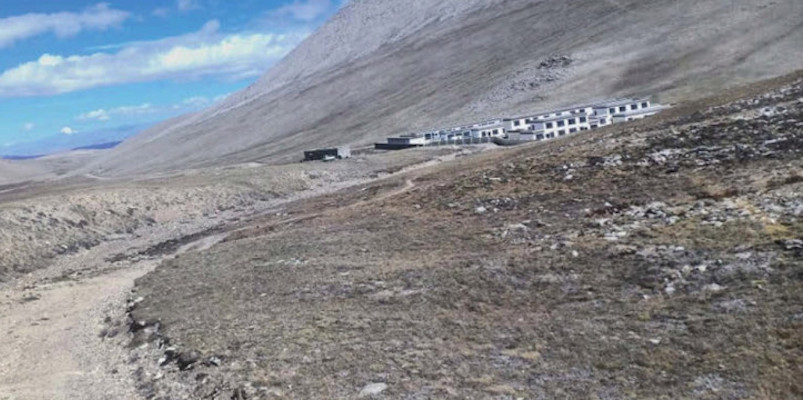New Delhi: The Himalayan nation of Nepal, which is considered a buffer zone between two Asian giants India and China, had in recent times become a hot belt of illegal activities by Chinese nationals and its establishment to create disturbance and manufacture fault lines not only in Nepal, but also in India with a larger strategic objective. The law enforcement agencies of Nepal are arresting many Chinese who visit the Himalayan kingdom allegedly under the garb of tourists and indulge in numerous illegal activities like trading counterfeit notes, human trafficking, cyber crimes and smuggling of wildlife parts from India. Many well informed Nepalese believe that their temporary motive is to morally corrupt Nepal and the larger strategic plot is to take the Himalayan nation under its full influence as many Chinese propaganda mechanisms claim Nepal as a part of the larger Tibet region. The adventure of China to colonize Nepal dates back to 1930 when Mao Zedong, supreme leader of China, controversially claimed in his text, The Chinese Revolution and the Communist Party, that “the correct boundaries of China would include Nepal, Bhutan and Burma”; he also coined the five fingers of Tibet policy in which he claimed that along with Tibet, which is China’s palm, Nepal, Ladakh, Sikkim, Bhutan and Arunachal Pradesh are its five fingers.
The other motive behind these recent activities is to corner India, which had shared friendly ties with Nepal since ages. The role of former Nepalese Prime Minister K.P. Sharma Oli is also under question as it was his government which had decided to waive visa fees to Chinese which led to the increase in their movement and subsequently led to the rise in illegal activities in the country.
Nepal government’s Department of Immigration (DoI) has deported 1,468 Chinese nationals living in Nepal illegally in the last seven years. In the last few years, Nepal saw on an average more than 1.6 lakh Chinese visiting the nation every year which is more than six times the flow which used to be in early 2000s. With the rise in the number of Chinese nationals visiting Nepal, there has been a surge in the number of criminal activities. The government of Nepal deported more than 250 Chinese nationals for their role in illegal activities in 2020 alone. The number is increasing manifold every year.
The issue became more controversial since the Chinese have invested huge sums in the district of Jhapa which is the former PM’s second home as his father migrated there in 1962 when K.P. Sharma Oli was aged 10. Many in the Himalayan kingdom are not ruling out a quid pro quo between Oli and China. A senior leader of Nepali Congress, who wished to remain unnamed, said from Kathmandu: “China had a dual objective. First is to morally corrupt our country through these illegal activities. Many of our people who have no means of livelihood became couriers for them and started practicing the trade. The second objective is to counter India’s influence in the country as Nepal-India shares a Roti-Beti relationship since times immemorial and New Delhi is Nepal’s major spiritual, economic and social partner. Therefore, Beijing, which aims for Asian supremacy, is trying to create fault lines between New Delhi and Kathmandu.”
In December 2019, the Kathmandu Metropolitan Police had detained 122 Chinese nationals in its biggest crackdown on crime by foreigners entering the country on tourist visas.
There were reports that a group of Chinese people armed with lethal weapons attacked taxi drivers and locals in Thamel district which led to protests by the local population. The local media also reported that the Chinese embassy in Kathmandu pressured the government of Nepal to release its nationals.
Deepak Kumar Pandey, an Assistant Professor of Political science under University of Delhi, said: “Chinese expansionist design is well-known. They had never in totality accepted Nepal as a sovereign nation. First of all to decode this, we have to go back in history. Nepal had a historical relationship with Tibet, after the invasion of Tibet by China in 1950s and its force capture, China-Nepal became real neighbours. Since then, China has tried to exert influence in Nepal through its deep pockets. The motive was what none other than Mao himself pointed out that they wanted Nepal as a colonized area under Chinese influence. So, what they are doing is a continuation of that stated policy and objective. At present, they know that India-Nepal has a close bond, so they are using all dirty tricks to corner India and corrupt the masses of the Himalayan Kingdom. But, one other major issue we forget is that India and Nepal share a long and open border. Hence, any illegal movement even within India by the Chinese through Nepal would be difficult to check.”

